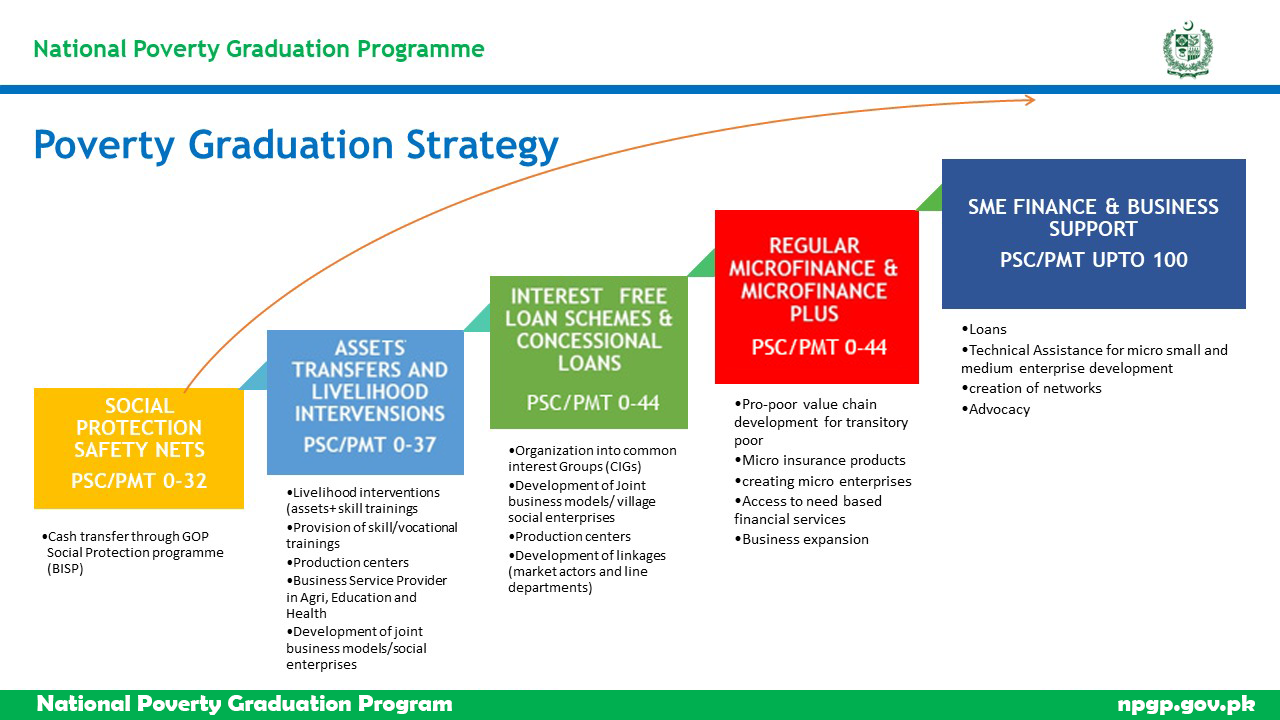
NATIONAL POVERTY GRADUATION PROGRAMME



The International Fund for Agriculture Development (IFAD) and the Government of Pakistan fund the National Poverty Graduation Programme (NPGP). This program, initiated in November 2017 and scheduled to conclude in June 2025, is implemented by a Project Management Unit within the Ministry of Poverty Alleviation and Social Safety (the lead agency). Eight partner organizations carry out the program's initiatives in 21 districts across four Pakistani provinces.
The Programme has two major components;
1) Poverty Graduation (USD 117.8 million)
2) Social Mobilization (SM) and Programme Management (USD 14.8 million)
The first component mainly focuses on productive Assets Creation (or Transfer), Interest-Free Loans (IFLs), and Training of Assets and IFL Beneficiaries. The second component entails SM, formation, and training of Community Resource Persons (CRPs), capacity building of Community Institutions (CIs), research studies, conferences, and policy briefs.
The Programme aims “to assist the ultra-poor and very poor in graduating out of poverty on a sustainable basis while simultaneously improving their overall food security, nutritional status, and resilience to climate change.”
The development objective of the project is “to enable the rural poor and especially women and youth to realize their development potential and attain a higher level of social and economic wellbeing through a proven, flexible, and responsive menu of assistance’’.
The Graduation Arc depicts the poverty graduation model as a sequence of consumption support, skills enhancement, asset transfer, saving and microfinance, with “graduation” into sustainable livelihoods as the end goal. Different interventions are tailored to each poverty band to ensure that the correct mix of tools are used to effectively graduate beneficiaries to a higher score on the poverty score card. The beneficiaries with a score between 0 to 37 are eligible for a combination of asset transfers and training. This includes social safety nets, cash transfers and other social protection programmes. The beneficiaries scoring between 0-50 are offered interest free and concessional loans as well access to microfinance plus schemes. The beneficiaries scoring above poverty score of 50 are offered regular microfinance and SME Finance business support.
